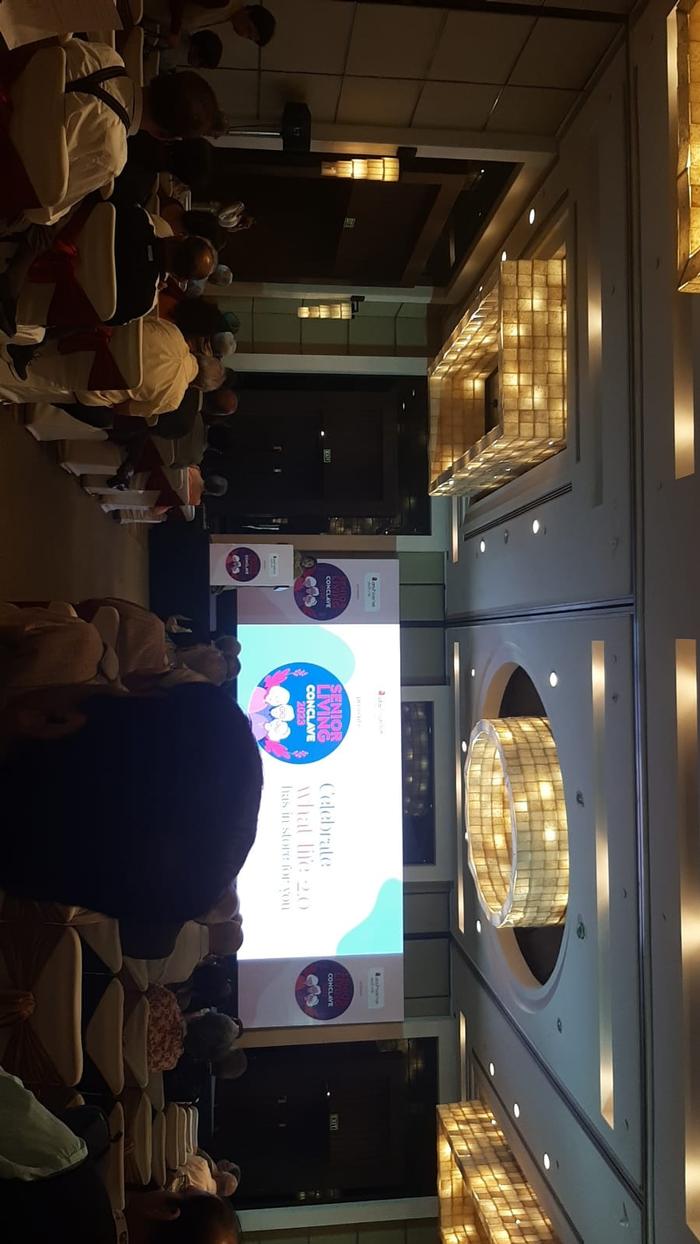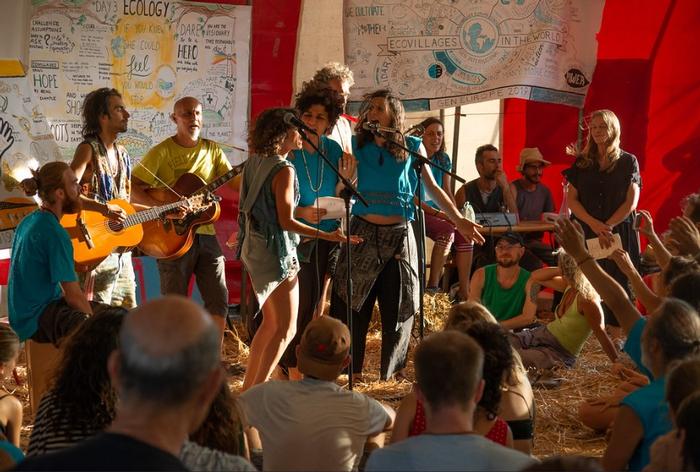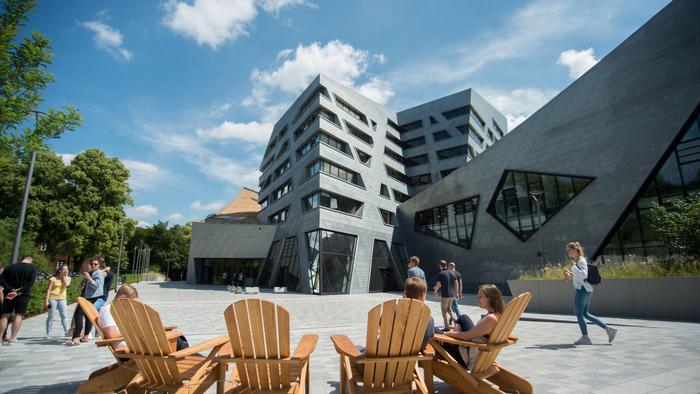Shoarya Sood - ProposalINTERGENERATIONAL EXCHANGE AND LIVING ARRANGEMENTS IN GERMANYI will be 50 in 2050 when India turns into an aging society The Joint setups stir a dread about Senior living facilities in India. Throughout the timeline of the Prize, I engaged in multiple discussions with various stakeholders in my community, out of which Ms. Krishna’s experiences stood out the most. A single woman in her late 60s, She has fostered a loving community of neighbors and friends who tend to her needs. But recently, she suffered from facial paralysis which made her question the preparedness of the immediate care response provided by her community members. In my quest to find suitable living options for her, I stumbled across a senior living conclave organized by Ashiana Housing Limited. Ashiana homes create a “celebratory environment” about seniors coming together in an exclusive compound under the pretext of “new beginnings”. In my essay, I inferred that such models are western exports of development. In contrast , Indian households cherish multigenerational participation where seniors are revered as repositories of wisdom. But after conducting a survey on what the seniors felt about the seminar, I was shocked to see a positive response. On asking how they would respond to an intergenerational model, most expressed hesitation about whether the youth would be even willing to talk to them. Ms. Krishna was concerned about her friends and family not wanting to travel to a facility located on the outskirts of the National Capital Region, thus isolating her from her current community. The same idea of an ‘all senior paradise’ received a critical- “ I would rather die” response from my grandmother. She, a widow in her 70s, has always lived in an extended joint family set up. Her two sons and their families live with her. She loves to look after her grandchildren, enjoys bantering with her daughter-in-laws And knits in her free time. The societal and the familial expectations both the women possess are different. There is no harm in living with “all-seniors” if the simulated environment provides a better quality of life. To understand, Ashiana’s target audience was different. Most of the senior citizens who attended the conclave had children either stationed abroad, were living solitary lives or wanted to move relatively closer to their children working in New Delhi. They wanted to escape the solitary confinement and mundane routine of their present lives and move to an environment of active aging with them being the prime focus. And have the opportunity to engage with other that felt the same way But the cultural reality of India is different. Still most elders live with their children. If the dwindling popularity of joint families has been slow, it's because Indians actively acknowledge the substantial contribution that the elderly make in their environment and communities. To endow the communities with sustainable resilience, an all inclusive intergenerational model is imperative. In my attempt to provide a more contextual alternative, I came up with a “contiguous” intergenerational model. It gives seniors the flexibility to stay within close proximity to their children, as well as ample mingling options to other seniors. Even though various such informal setups exist in India, there is no trace of such a model on the internet. So, Contiguous Living Arrangements become exploratory avenues to learn more about “ intergenerational exchange” and various “ intergenerational living arrangements”. Over the discourse of my research, Mr. Gaurav Shorey, a sustainability consultant and founder of 5waraj encouraged me to delve further into such arrangements for Indians. His ideology at 5waraj’s is deeply rooted in the belief that “Local Culture is inherently sustainable evolved over millenniums to a specific geo-climatic context, and continues to respect and take-care of the environment”. His course on “ Sustainability and responsibility” at Leuphana University in Lueneburg, Germany resonated with my study and his student’s findings from his project seminar- “Youth of the future - Future of the Youth: Intercultural Learning Program between Indian and German youth”, raised pertinent questions about the cultural appropriation of the SDGs that further enhanced my essay findings. So for my travel Fellowship, I reached out to Prof. Deepika Joon, Under her tutelage, her students answered insightful questions like “Does intergenerational exchange help individuals in dealing with the climate crisis?” The response to such a question was extremely layered and made me realize that the integration of the society is one of the first posts of achieving our shared goal of fostering resilient communities. Prof. Joon offers an in-depth lens into the field of sustainability and intergenerational study to further learn about intergenerational arrangements for seniors. Ecovillage Conference (12-17 July) Ecovillages are intentional regenerative communities establishing innovative ways of governance and power sharing through intergenerational dialogue. Each member of the community contributes to the Ecovillage that is beneficial to the system. The members function through resource sharing and acquire responsibility that help in the cohesion of the community, enabling a natural support system. Each year, Gen Europe Global Ecovillage Network organizes a gathering of the Ecovillage movement in order to celebrate and explore the rich variety of ecovillages and the possibility they hold for the wider world. This year the focus is on “living together in a changing world”, which will be done through a showcase of conflict resolution tools and community cohesion methods developed by Ecovillages. In the conference, I will learn about how Ecovillages work, explore ecosystem restoration, healing the world and our communities, Alternative Technologies, Climate Justice, Community care, Governance etc. It will be a platform of great cultural display with me bringing substantial amount of knowledge pool to the table Riccardo De Amici, President of RIVE (Rete Italiana Villaggi Ecologici) is my contact person who will be facilitating me. Through his help, I will conduct various interviews with senior members of the German Ecovillages. He also possesses a vast expanse of knowledge about Italian Ecovillages. Contact : riccardo@gen-europe.org Ecovillage conference details : https://ecovillagegathering.org/about-the-gathering/ An Ecovillage in Germany (tentative 5 days) With Mr.Riccardo's assistance, I am trying to get in touch with Ecovillages in Germany. Each Ecovillage has its own hierarchy, arrangement and system suited for its needs. Visiting an Ecovillage, will help me deepen my understanding of the community dynamics, inculcated values, and design responses specific to each community. I am currently awaiting a response from Sieben Linden, Fuchsmule and various such ecovillages located throughout Germany. If I do not get a response from either of the Ecovillages, I will be extending my stay at Lueneburg and Nature community (Ecovillage conference) The Institute for Sustainable Development and Learning (ISDL), Leuphana University, Lueneburg, Germany (22 July- 1 August) ISDL is a central, cross-faculty institution at Leuphana University of Lüneburg aiming to research and support transdisciplinary learning processes for sustainable development. There, I will be facilitated by Prof. Deepika Joon and Prof. Claire Grauer, who will organize tasks, projects and visits in Lueneburg to bring a multidimensional depth to my study. In Lueneburg, various intergenerational projects are emerging like LeNa, Fluse, Syndikat Housing, Mosaique: House of cultures, Lueneburg 2030+: city of the future, queerbeet project, raeume project etc. The professors are also organizing interviews with architects and planners who are working on such projects presently and will be able to impart the technical knowledge as well. I shall receive a cover letter from Prof. Joon to help ease my visa application process. Contacts: Ms. Deepika Joon: deepika.joon@leuphana.de Ms. Claire Grauer: grauer@leuphana.de Prospective Itinerary - 11 July: Delhi to Munich, 12 July: Munich to Schonsee, 12-17 July: Ecovillage Conference, 17-22 July: Ecovillage, 22-31 July: Lueneburg, 31 July- Luneburg to Frankfurt, 2 August- Frankfurt to New Delhi Tentative Budget (Prices converted from Euro, Indian Rupee, to US Dollar)- Visa: USD 90 + Additional Charges, Travel Insurance: USD 35, Round Trip Airfare, Delhi- Munich, Frankfurt- Delhi: USD 1100. (as of March 27, 2023) Ticket Cost at Ecovillage conference: 410-450 (depends on the time of booking), Accommodation at Ecovillage: USD 150, Intercity travel (5 destinations) USD 350, Accommodation and Meals: USD 750, intra city travel: USD 225. Total Cost USD 3150. All additional costs shall be borne by me. Reference : Dr. Priyanka Kochhar, visiting faculty at USAP : priyanka.usap@gmail.com Additional Help and InformationAre you in need of assistance? Please email info@berkeleyprize.org. |
|




